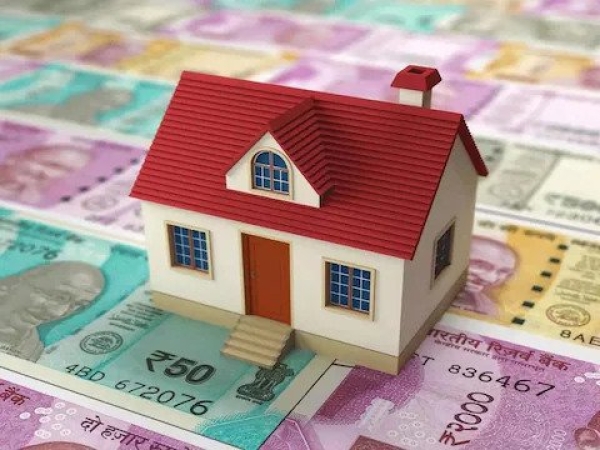Budget 2023: What home buyers can expect from FM Nirmala Sitharaman?
Among the factors most anticipated by home buyers, Budget 2023 will be an increase in the discount limit for interest payments and the principal amount of housi
- by B2B Desk 2023-01-24 07:37:06
Among the factors most anticipated by home buyers, Budget 2023 will be an increase in the discount limit for interest payments and the principal amount of housing loans, especially to stimulate demand in a scenario of rising rates of interest. In addition, there is a request for relief on some tax procedures, the GST structure, and a cap for homebuyers.
Finance Minister Nirmala Sitharaman will announce the Union Budget 2023 on February 1

What to expect from this budget?
Ramani Sastri, Chairman and CEO of Sterling Developers, revealed that the real estate sector is waiting for much-needed reforms and incentives in the next budget. This year, demands exceeded the usual expectations for the single window clearance and state of the industry. There is an explicit need for more tax measures for homebuyers as well as investors.
According to Atul Monga, founder and CEO of BASIC Home Loan, the real estate/mortgage sector is an important part of the Indian economy and is facing tough times due to rising interest rates. To foster growth in this sector, lenders must offer competitive credit products with reasonable rates and attractive repayment terms. This can help the segment stay competitive and provide budget certainty to customers.
Currently, the maximum tax on home loans is Rs 2 lakhs and has been the same for the past few years. During these years, there was also inflation. Therefore, Sastri said, the government should increase the discount limit for interest payments on home loans from present Rs. 2 lakhs per annum to Rs. 5 lakhs, which will boost demand for homes, especially in the affordable segment.
Sterling Developers MDD believes that there is a definite need for second home income tax relief and positive measures regarding long-term capital gains, which will greatly benefit homebuyers and also stimulate the industry. of real estate.
"We think the cap on capital gains for reinvestment in two properties should be lifted, and the capital gains tax rate should be lowered from 20 percent," he continued. Previously, there were unlimited tax savings on the second, therefore, that was very beneficial." And people trusted real estate as an investment opportunity. There should also be an expansion of the definition of affordable housing, as this would broaden the benefits for homebuyers and therefore boost end-user demand."
In addition, any tax breaks on rental income will also encourage more investment in residential real estate. "We also hope to reduce the capitalization tax rate by 30 percent to improve per capita purchasing power," Sastri said. "The budget should include some personal tax relief, either in the form of reduced tax rates or, more urgently, revised tax brackets. There is a disagreement. Strong interest in supporting first-time homebuyers since doing so will increase real estate sales, which not only stimulate demand for 200 other businesses but are also the country's second-largest employer.
Highlighting that interest rate increases could have a significant impact on the mortgage lending and real estate sectors, making affordability a major concern for buyers, Monga added: “The government needs to take action, such as increase tax deduction for home loan interest under Section 24(b) to INR 5 lakh. The current price range of INR 45 lakhs for a property to be considered affordable housing is not suitable in most cities in India, and should be increased to INR 75 lakhs or higher.”
In addition, Anuj Sharma, Chief Operating Officer at IMGC, also believes that tax credits or rebates for first-time homebuyers can help lower the overall cost of buying a home, making it more affordable for them. Increased housing plan provisions may also support the increased availability of affordable housing options. Infrastructure development initiatives include improvements to infrastructure, such as roads, public transportation, and utilities, that can make certain areas more attractive to homebuyers and increase property values in those areas. In addition, to increase the supply of housing, the government may announce measures to make it easier for developers to build new housing projects or measures to encourage the construction of affordable housing.
In terms of home loans, Sharma added that lower interest rates on home loans could make it more affordable for homebuyers to borrow money to buy a home. In addition, reducing the required down payment or easing the eligibility criteria for home loans are some of the expected actions in terms of relaxing the rules for making use of mortgage loans that can make it easier for homebuyers to obtain financing.

In addition to increasing tax breaks on interest and principal amount of home loans from 2 lakhs to 5 lakhs, Amit Goyal, CEO of India Sotheby's International Realty, also envisions a bold and growth-oriented budget with announcements that will encourage capital investment and FDI inflows in India. Taxes on interest and principal on mortgage loans are expected to mitigate the impact of the rise in savings mortgage loans. He concluded: "This has been a long-standing industry request and there is no better time than now to do it."
According to Shiv Parekh, founder of hBits, the deduction limit for interest payment on home loans should be increased from the existing Rs. 2 lakhs per year to Rs. 5 lakhs and the maximum of 1.5 lakh for basic home loan deduction. housing needs to be increased to 5 lakhs to boost the affordable and luxury housing sector which is what is needed of the hour. He also believes that commercial real estate also needs a bigger push, especially in the Tier 2 and Tier 3 markets, as there is a lot of room for growth in those markets. Lowering the tax rate from 30 to 25 percent will definitely help the sector as a whole.
There is also an expectation of change in the GST structure. Munja believes that the current GST structure for affordable and off-plan housing creates an additional burden on developers, making properties more expensive for buyers. This drives up the price of the house because the GST on steel and cement is 18 percent and 28 percent respectively and developers cannot claim tax credits for GST paid on down-home items. To reduce this burden and increase the affordability of real estate, the government may consider reinstating the Input Tax Credit (ITC) in the upcoming Budget 2023. Also, setting the GST at 1 percent for projects under construction and lowering the costs of raw materials like cement and steel can help encourage more people to buy affordable homes.
Furthermore, Raj Khosla, founder and CEO of MyMoneyMantra.com, believes that the definition of affordable housing today is based on bank loans made to people to build or buy homes. Affordable housing in metropolitan cities is currently limited to Rs. 45 lakhs; This limit must reach at least 75 lakhs.
In addition, Subramanian mentioned that there is also an expectation of a review of the Section 80c and Section 24 limits for principal and interest reductions on home loans. With inflation rising in the past two months, so has the cost of construction, and any streamlining of these limits will help the end consumer.
In particular, Shishir Baijal, Chairman and MD of Knight Frank India, highlighted the need for a 100 percent tax exemption for affordable housing projects under section 80IBA and also a 100 percent exemption on rental income.
With respect to Section 801BA, the 00 percent tax credit for affordable housing projects under Section 80IBA, Shecher said, was available for projects approved through March 31, 2022. This section allowed developers to claim a credit 100 percent tax on earnings subject to many eligibility requirements. criteria, including the approval timeframe. Since this is the most materially important measure to improve the viability of affordable housing projects, we believe it is important to revive this measure again.
Meanwhile, Shishir is also expecting a 100 percent exemption of rental income up to Rs. 3 lakhs for homes up to Rs. 50 lakhs. According to him, this will encourage people to invest in the affordable housing sector which is experiencing a huge housing shortage. Given the low profitability of rentals, the owners of these homes avoid letting them move. This measure will directly stimulate these owners to rent their homes to the target segment, thus increasing efforts to increase housing in this sector.
Also Read: 5 income tax relief measures that middle class expects from Budget 2023
POPULAR POSTS
Union Budget 2023-24 | Everything you need to know about this year's budget
by B2B Desk, 2023-02-01 10:33:17
Budget 2023: Can India remain a bright spot in global economy?
by B2B Desk, 2023-01-31 08:47:47
Union Budget app will deliver Budget 2023 in paperless form: See how to check
by B2B Desk, 2023-01-30 10:38:04
Budget 2023: Government holds 'Halwa' ceremony, marking final stage of Budget preparation
by B2B Desk, 2023-01-27 06:10:09
5 income tax relief measures that middle class expects from Budget 2023
by B2B Desk, 2023-01-23 06:36:44
5 Major Announcements Expected From Union Budget 2023
by B2B Desk, 2023-01-20 06:16:15
Budget 2023: Will Nirmala Sitharaman provide some tax relief to India’s salaried class?
by B2B Desk, 2023-01-13 10:02:33
RECENTLY PUBLISHED

Loan EMIs to Drop as RBI Slashes Repo Rate - Full MPC December 2025 Highlights
- by Shan, 2025-12-05 11:49:44

The Agentic Revolution: Why Salesforce Is Betting Its Future on AI Agents
- by Shan, 2025-11-05 10:29:23

Pine Labs IPO 2025: Listing Date, Grey Market Premium, and Expert Outlook
- by Shan, 2025-11-05 09:57:07

Top 10 Insurance Companies in India 2026: Life, Health, and General Insurance Leaders Explained
- by Shan, 2025-10-30 10:06:42

OpenAI Offers ChatGPT Go Free in India: What’s Behind This Big AI Giveaway?
- by Shan, 2025-10-28 12:19:11

Best Silver Investment Platforms for 2025: From CFDs to Digital Vaults Explained
- by Shan, 2025-10-23 12:22:46




 Subscribe now
Subscribe now 